- Home
- Kathryn Lasky
Felix Takes the Stage
Felix Takes the Stage Read online
To Greta Binford, who has taught me to love spiders
—KL
Contents
Title Page
Dedication
Prologue
Chapter One
Chapter Two
Chapter Three
Chapter Four
Chapter Five
Chapter Six
Chapter Seven
Chapter Eight
Chapter Nine
Chapter Ten
Chapter Eleven
Chapter Twelve
Chapter Thirteen
Chapter Fourteen
Chapter Fifteen
Chapter Sixteen
Epilogue
Author’s Note
Copyright
For Felix, the best part of the night came when the concert had ended. The lights in the grand symphony hall had dimmed. The audience had gone home, as had the members of the orchestra with their instruments. But the Maestro stayed on. Still at his podium, he raised his baton to conduct a phantom orchestra. And so in a strange way the music lingered, at least for Felix. He knew exactly which part the Maestro would go over with the mute orchestra — the second movement of Brahms’s Symphony no. 3. The musicians had not done their best with it. And Felix knew that the Maestro probably blamed himself. He would rehearse it now, silently, as was his custom after a less than perfect performance.
Felix was all eyes — all six of them riveted on the symphony conductor he worshipped. He loved music. He felt it with every nano-hair on his eight legs. And now he dared to creep out from behind the music stand, where he had hidden between the pages of the score.
If I could only ride the baton, I could feel the passion of the notes, Felix thought.
Go for it! A tiny voice in his head urged.
But riding the baton would break his mother’s most basic rule — never, ever reveal yourself to human beings. Her words had been repeated over and over until they threaded through his mind. “We are recluses; that is the name of our species. We hide!”
Felix felt a slight wobble in at least four of his eight legs. Half of him wanted to be a good spiderling and obey his mother, but the other half … oh, that other half yearned to be an artist!
Felix understood his mother’s reasoning. The venom of brown recluse spiders was one of the most toxic on earth. It was natural that humans feared them, even though no one in his family had EVER attacked anyone. But Felix was deeply musical. He lived in a philharmonic hall and yet his mother had forbidden him to get anywhere near the great conductor. It seemed to Felix that his mom was as scared of humans as humans were of them.
It made no sense. Leon Brinsky was his hero. The man was a genius. I don’t have to talk to him, Felix thought. I’m not asking for his autograph. I just want to feel the motion of the baton. That’s all, for crying out loud!
And with that, Felix backed around. The muscles of his spinnerets began to force liquid silk up toward his spigots. Another few seconds and he’d have a hoist line to swing up to the baton. Now I’ll know Brahms!
It was Felix’s last thought before the accident.
“Mom!!!” he screeched in pain.
Felix’s mother, Edith, was tending her rather disorderly web in the basement when she felt the thump. A rain of dust and debris fell down on the small section of the web that she had planned to use for “circle time” with her young brood. This was a concept Edith had learned about at the Martin Luther King Jr. Elementary School in Phoenix, Arizona. The young kindergartners and their teacher would all sit on the floor and share ideas and stories. Edith was trying very hard to make a circular area, but brown recluse spiders were not known for their neat webs.
Edith had been very fond of that kindergarten teacher, Ms. Lafferty. She loved the stories Ms. Lafferty told that drew out even the shyest kindergartner. When the children were not paying attention, Ms. Lafferty would say, “All eyes on me!” Edith wanted to have circle time like that with her own children — Jo Bell, Felix, and little Julep. All eighteen of their eyes on her.
Ms. Lafferty had deeply influenced Edith. In her own mind, Edith thought of her children as being the ages and grades of schoolchildren. Julep, the youngest, was a kindergartner, perhaps on occasion pre-K. Felix was an elementary school kid. Jo Bell, the oldest, was junior high age but yearning to be considered a high school girl.
Just then, Edith heard the awful thump. No! she thought. She instinctively drew her fangs in tighter.
“Felix!” she called out. “Felix, you didn’t!”
Felix picked up the anguish in his mother’s voice as he scuttled and skibbled his way down an air-conditioning vent to the basement.
She can’t think I actually killed him — not on purpose!
“Mom!” he called as he arrived at the web. “All I did was —”
“It doesn’t matter. He’s dead, right?”
“He only saw me. That’s all!”
“Look at him,” Jo Bell wailed. “Felix is bleeding!”
“Bleeding? Where?” Edith asked.
“Mommy, Felix’s lost a leg!” Julep cried.
“Oh, mercy!” Edith swung down from the messy circle she had been making. There were pale blue drops on the floor where Felix had now collapsed. “Don’t worry, darling. I’ll staunch this blood in a second.”
She quickly tore a swathe from the web she had been spinning and began to bandage the wound. The bleeding stopped.
“Mom, I did NOT bite him. I really didn’t. He just collapsed as a reaction to seeing me. I kept my fangs tucked, I swear! Even when he sliced down with his baton — I never thought of a baton as a weapon — it was art … art.”
“Don’t talk, nubkins. You’re too weak.”
“But I thought it was art. Mom, I’m not a killer.”
“No, darling. I know that.”
She has to understand that whatever happened was by accident! Just an accident.
“Felix, you lost a leg for art. You almost died for art!” Julep wailed.
“There will be no talking of death. Stop that right now! Felix will survive.” Edith spoke fiercely. “Felix’s only crime was that he showed himself.”
“But, Mom, it can’t be a crime to be seen,” Felix objected.
“I misspoke, dear. I didn’t mean crime. I meant inappropriate behavior.”
But Felix suspected his mother did think it was a crime to be seen. Good behavior in his mother’s mind was hiding in the dimmest, darkest places imaginable. Then an odd thought struck Felix. I’m not a criminal, but perhaps I am not a recluse either. An argument began within Felix. For if he was not a recluse, which by definition meant one who avoided contact with others, did that mean he was not a member of his species — the brown recluse spider? Was he denying his species or just his personality?
“I’ll never be able to conduct with only seven legs anyway,” Felix muttered.
“How will he hunt? How will he move with only seven?” Jo Bell asked.
“Enough of that, young lady!” Edith took a deep breath. “Felix will live. He will hunt. He will even conduct. If you knew the first thing about spider biology, you would know that a young spider is perfectly capable of regrowing a limb during his next molt.”
“Really, Mom?” Felix asked.
“Really.” Edith paused. “Now, we’re going to have to get out of here, children. There’s no choice.” She paused again, then looked into the eighteen eyes of her children. “You know what I mean!”
“It’s the E word, isn’t it?” Jo Bell said.
“Yes, exterminators.”
“Oh, no!” whispered Julep. They had all heard about the terrible humans who came in white suits with gleaming white helmets and hoses, but the children had never seen them. Howeve
r, Edith had. She didn’t talk about it much. When the children asked her questions, she was always quite vague. The E-Men were a subject the whole family avoided.
“Before we leave, I want to check on the Maestro. If he’s not dead, maybe we can help him. Jo Bell!”
“Yes, Mom.”
“Get Fat Cat now. Hop to it!”
With the exception of the elementary school where Edith once lived, she’d always had a penchant for theatrical places — grand old movie palaces, theaters, opera houses — the more ornate the better. Therefore, she was familiar with the tradition of theater cats. These cats slinked about backstage, a soothing presence for nervous performers and an effective way to keep down the mouse population. Perhaps the most notorious of these felines was Fat Cat’s distant cousin Boy Cat, who had hopped down from the stage into the empty front row seat during The Phantom of the Opera, perched next to Princess Margaret, and then proceeded to eat her bouquet.
Fat Cat, or Fatty, as he was fondly called, was a lazy caramel-colored Manx and had long been the “house cat” at the philharmonic hall. He had arrived some years before on a cruise ship that specialized in theater on the high seas. The seas, however, got a bit too high and the drama — well, too dramatic — when the ship sprang a leak. Fatty had washed up in a bucket on the shore of Venice Beach in California.
He had arrived at the symphony hall shortly before Edith. The poor spider was clearly exhausted when she staggered into Fatty’s basement. But Fatty was drawn to her immediately. Even sleepy, she had a charm.
“Don’t worry! Don’t worry!” she kept telling him. “It’s nothing. Nothing! I’ll be fine in a few hours. But I’m too tired to make a web at the moment.”
“Rest here, madame.” Fatty wiggled an ear.
“Oh, how kind.”
“Here, I’ll help you.” Fatty pressed his furry cheek against the floor so Edith could climb into his left ear.
A few hours later, Edith had spun a silken sac into which she had deposited her eggs. “You don’t mind? Do you?”
“No, not at all,” Fatty replied, although it was rather like having cotton plugs in his ear.
And then a few weeks later, what Edith referred to as “nothing” became “something.” Something that Fatty would always think of as a miracle. For that evening, during a stirring cello performance, Edith’s eggs hatched. Jo Bell first, then Felix, and finally Julep almost an hour later. It was a small brood, most likely because of how tired Edith had been. She later explained that her husband had died shortly after she found out that the children were coming. Without Fatty, she might not have managed on her own.
Fatty became the children’s godspider. One did not have to be a spider to assume this role of mentor, second-opinion giver, and protector. Kindness and wisdom were Edith’s main requirements. Edith herself had had a pig for her godspider, a pig named Charlotte, who oddly enough had been named for a famous spider in literature. If Fat Cat had any flaws, it was a tendency toward laziness that left him a little chubby.
“Fatty! At last. We’ve had a disaster!” Edith began.
Fatty caught sight of Felix and blinked. “What in the name of …”
Edith sighed. “Did you hear that thump?”
“Yes.” Fatty said, then purred with deep apprehension. “Not the …”
Edith nodded wordlessly.
“We must check on the Maestro at once!” Fat Cat exclaimed.
“That’s why I sent for you. If he is not d-e-a-d”— She could not say the dreadful word. She had to spell it out, although all of her children could spell — “if he isn’t, we must do something to save him.”
“Of course.” Fat Cat nodded.
Edith turned to Felix. “Felix, we’re going upstairs to the stage and investigate. You stay here.”
“I don’t think I have much choice, Mom. Remember, I’ve lost a leg.”
“Yes, dear, but that eighth leg will grow back. Next molt. Now I’m going to wrap that bandage a bit tighter.” Edith made a grimace and began squeezing out some more liquid silk. Then, like the most superb seamstress, she began to weave an outer layer around Felix’s wound.
“Marvelous, simply marvelous!” Fatty purred in wonder as he watched Edith with her son.
“All right, we’re off!” Edith said as she tied the last knot. “The girls and I will take the air vents, Fatty. You take the stairs. We’ll meet at the podium.”
And so the cat and the three spiders made their separate ways toward the stage, where the Maestro lay in a heap.
Let him not be dead! Let him not be dead! Edith prayed to a nameless spider god of silk and venom. Edith was not one to complain or whine, but in bad moments, she did feel that there was something very sad about being so misunderstood. Not simply misunderstood but reviled. It seemed preposterous to Edith that humans feared her as much as they feared great white sharks. We’re not mean, Edith thought mournfully. We just happen to be extremely venomous.
Brown recluse spiders, Edith thought, rarely waste our venom on things we cannot eat. What lay before her was definitely indigestible. The Maestro was a mountain of a man. The immense expanse of his starched white dress shirt lofted into the dim light like an alpine field. The pages of his score for the Brahms symphony were scattered about like patches of snow at a mountain base. And now the time had come to climb. “All right, children, I want you to start paying out your number one quality silk. We’re going to need the best haul lines ever.”
“Mom, we’ve never spun that kind of silk,” Julep said.
She didn’t want to alarm her children, but this was an alarming situation and it seemed Julep was on the brink of one of her pre-K moments.
“Julep, don’t whine. Just do it! This is a matter of life and death.” Edith paused. “Now prepare to ascend!” The message was clear. This is serious business!
Fatty watched as the three spiders entered a kind of deep trance. Soon the silk was paid out and he saw the little spider family, led by the intrepid Edith, begin their ascent. Unlike human mountain climbers, their ropes never ever twisted and were hundreds of times stronger per weight and strand, although many times thinner. But to Fatty, this was more than mountain climbing. The air was suddenly filled with flowing rivulets of silk, and the three spiders, as graceful as aerial artists, swung through the air on glimmering threads. The air seemed to sparkle with their silken choreography. Now, this is theater! Fatty thought.
“Summit!” Edith called down. The leg hairs of spiders contain some of the most highly refined sensors of any animal on earth. They can detect the slightest vibration of a microscopic insect in a web. Edith quickly scuttled across the Maestro’s belly and crawled up a gully formed by a pleat of his dress shirt. She wanted to stand over his heart to see if she could confirm a pulse. Hardly a quarter way up the pleat gully, Edith felt distant heartbeats, though they were somewhat irregular. Relief swept through her entire body, from fangs to spinnerets.
“Heartbeat confirmed!” she cried. “The Maestro lives! Quick, children, down we go. I must consult with Fatty at base camp.”
And so Edith swung herself onto the two parallel threads of silk and began a controlled but speedy downward slide. She was followed by Jo Bell and Julep, who argued about who got to go first. “You always go before me,” Julep complained.
“Don’t whine! I’m older.”
“That’s no excuse.”
Fatty shouted up, “Stop your bickering, both of you!”
“So, Fatty, he lives. Did you find any signs of bites, any fang marks at all?” Edith asked. “Unconsciously, Felix’s fangs could have shot out — just a reaction.”
“No, Edith,” Fatty said slowly, but there was a certain tension in his voice. “There was no sign of injury — not of injury inflicted by Felix.”
“It was obviously fear that made the Maestro faint,” Edith said confidently.
“Yes, he definitely fainted.”
“But what, Fatty?”
Fatty looked down at the starched
white cuff that extended from the sleeve of the Maestro’s tuxedo jacket. All six of Edith’s eyes focused on the two pale blue drops at the very edge of the cuff. Felix’s blood! Despite her eight legs, she suddenly felt unsteady.
“Mom!” Julep gasped.
“Mother!” Jo Bell said.
“I’ll be fine, girls. Just let me catch my breath.” She turned to Fat Cat. “Fatty, you know what this means.”
“It’s like a calling card, isn’t it?” the cat answered.
“Yes, exactly — a calling card: ‘Brown recluses have been here.’”
“Mom?” Julep said, her voice fraught with alarm. “Will the humans come for us?”
“Yes, I’m afraid so,” Edith replied in a dim little voice.
“No hope mopping up the blood, I suppose?” Fatty asked.
“None. It’s soaked into the material.”
“But, Mom, what are you talking about? The Maestro’s not dead,” Jo Bell said.
“No, but it will still be the …”
“The E word,” Julep whispered.
“Yes, children. We haven’t much time.” Edith swung around to face Fat Cat. “The Maestro might have suffered a heart attack when he saw Felix. Fatty, we have to alert someone. And then the children and I have to skedaddle.”
“Oh, Edith!”
“Fatty, no drama! If he has suffered a heart attack, we might be able to save him.”
“But how?”
“You’re going to have to pull the fire alarm. It’s the only way.” She paused a moment. “And to put it plainly, children, as soon as they see that blue blood, we’ll be on the Most Wanted list. Murder suspects.”
“But he’s not dead,” Jo Bell said.

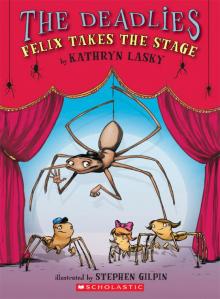 Felix Takes the Stage
Felix Takes the Stage Lucy
Lucy Lone Wolf
Lone Wolf Broken Song
Broken Song The Shattering
The Shattering The Crossing
The Crossing May
May Chasing Orion
Chasing Orion Star Rise
Star Rise The River of Wind
The River of Wind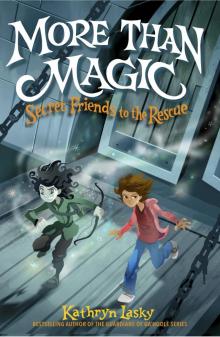 More Than Magic
More Than Magic Born to Rule
Born to Rule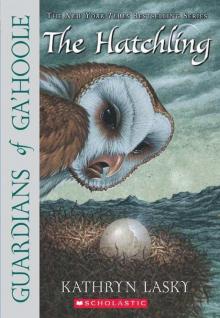 The Hatchling
The Hatchling The Rescue
The Rescue Marie Antoinette: Princess of Versailles, Austria - France, 1769
Marie Antoinette: Princess of Versailles, Austria - France, 1769 The War of the Ember
The War of the Ember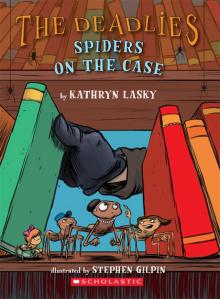 Spiders on the Case
Spiders on the Case To Be a King
To Be a King The Last Girls of Pompeii
The Last Girls of Pompeii The Outcast
The Outcast Exile
Exile Night Witches
Night Witches Spirit Wolf
Spirit Wolf The Quest of the Cubs
The Quest of the Cubs Frost Wolf
Frost Wolf The Keepers of the Keys
The Keepers of the Keys The Extra
The Extra Blood Secret
Blood Secret Watch Wolf
Watch Wolf Blazing West, the Journal of Augustus Pelletier, the Lewis and Clark Expedition
Blazing West, the Journal of Augustus Pelletier, the Lewis and Clark Expedition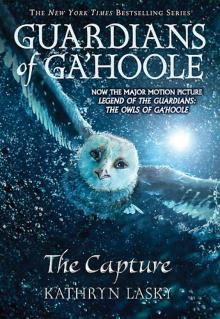 The Capture
The Capture The Burning
The Burning The Journey
The Journey Unicorns? Get Real!
Unicorns? Get Real! The Escape
The Escape Star Wolf
Star Wolf Ashes
Ashes Wild Blood
Wild Blood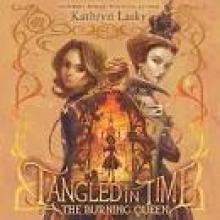 Tangled in Time 2
Tangled in Time 2 The Siege
The Siege Hannah
Hannah Elizabeth
Elizabeth A Journey to the New World
A Journey to the New World Christmas After All
Christmas After All Mary Queen of Scots
Mary Queen of Scots